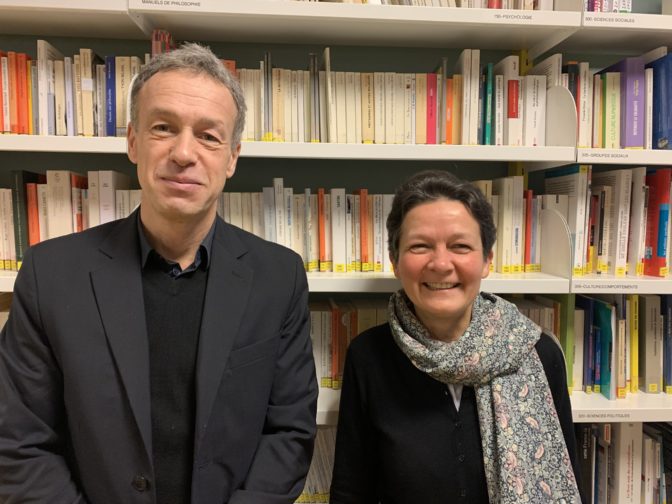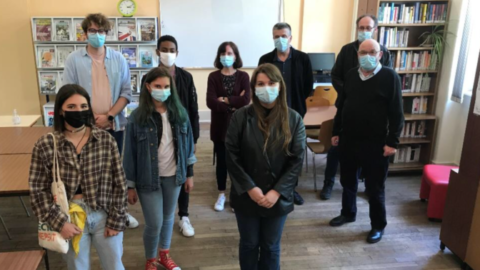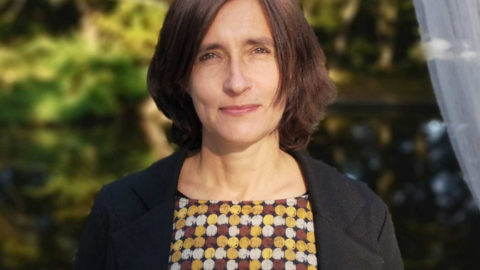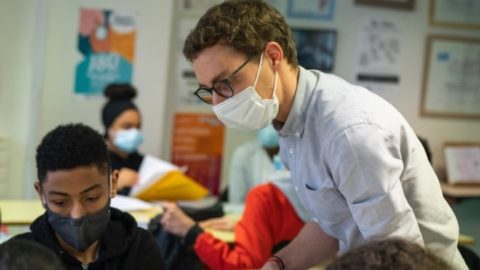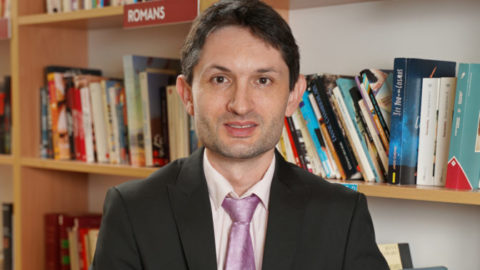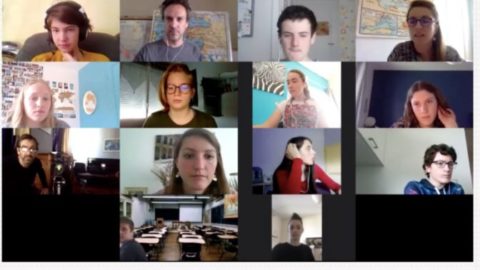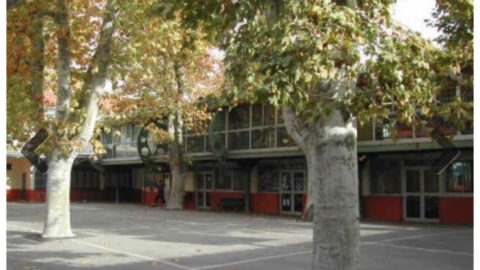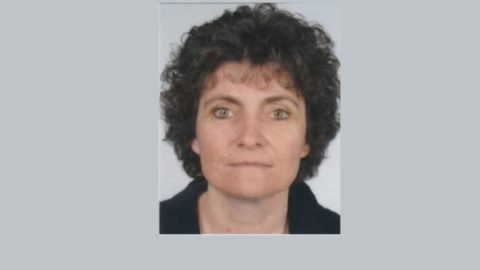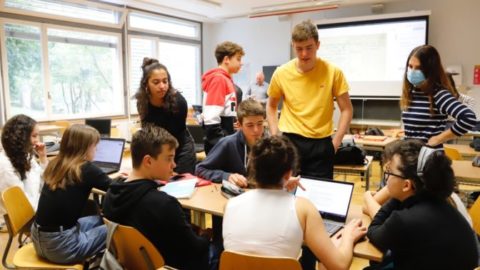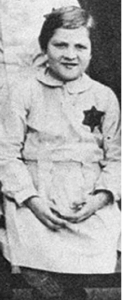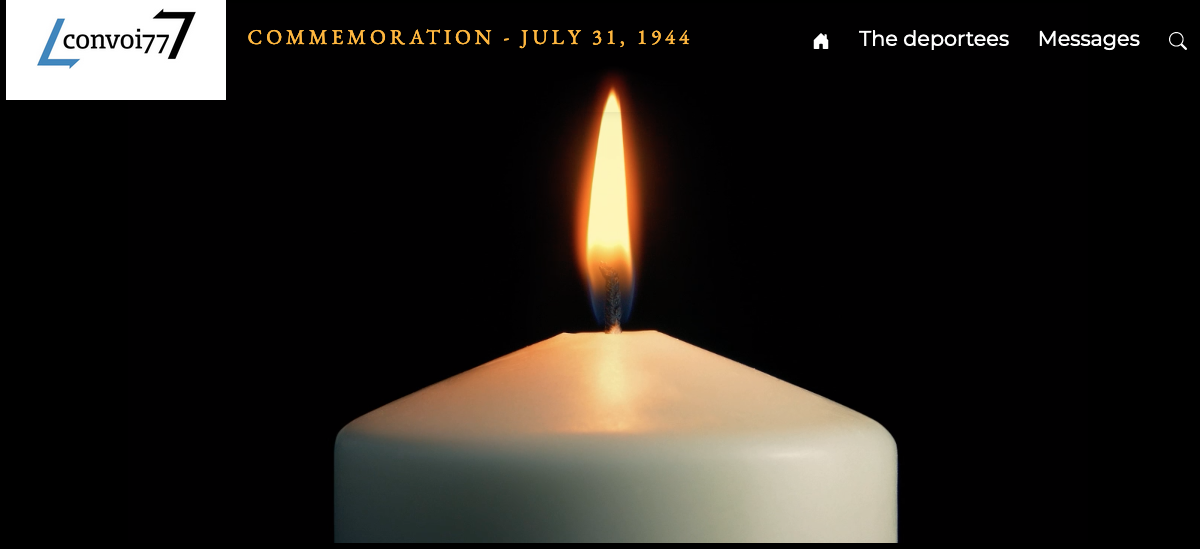Marine Lechat, Vincent Terrasson de Fougère and their students worked on the biography of Chasja Moinet, a deportee who was born in Latvia and murdered at the age of 37. This project is one of the eleven European projects chosen by the French Ministry of Education.
Please can you tell us about yourself and your class?
Vincent Terrasson de Fougère and I are both History and Geography teachers. We have been teaching for more than 15 years at the Prins Henrik French high school in Copenhagen, Denmark.
I completed the entire training course at the University summer schools (in Paris, Poland, Israel and Berlin) as recommended by the Shoah Memorial in Paris, and it was in this context that I met Georges Mayer, the founder of the Convoy 77 project. He assured me that we would find a deportee from Convoy 77 who had links with Denmark. This was indeed the case and that became the subject of our first research project (on Tauba Goldstein, who was born in Copenhagen).
Four 10th grade classes took part in the project one after another, in the 2017-2018 and 2018-2019 school years. They were groups made up of 18 to 20 students aged around 15, from multicultural backgrounds and speaking several languages (French, English, Danish, German, Spanish, Russian, etc.)
The class that won the award shared these characteristics and, like the other classes, was made up of well-motivated students of good to excellent ability.
How did you organize this group work in the context of the Convoy 77 project?
The Exploratory Learning classes (in this case specializing in literature and society) which were part of the 10th grade curriculum and which were abolished by the recent French high school reforms, were an ideal framework for this type of project because they were taken by two teachers. In our school, half of the class takes part over the course of each semester.
We therefore worked with one group, for two hours a week, from September to January and another group from January to June, which made it possible for us to carry out two successive research projects on two different deportees with the same class over a two-year period.
In class, the work was initially centered on the context of the deportation and on the camps. Next, we studied the “deportation-related literature“; the written testimonies of deportees (Primo Levi, etc…). Then we launched the research phase, by asking the students to search for information about the deportee concerned, each group being responsible for a part or an aspect of his or her life (childhood, studies and professional life, deportation, family tree, etc.)
The students had to write e-mails and letters to all relevant organizations (associations of deportees or descendants of deportees such as Sons and Daughters of Jewish Deportees of France, memorials such as the Shoah Memorial, Drancy and Yad Vashem, schools and workplaces etc.), or to other people who could provide them with information, such as family members of deportees. The students had to collect this information and list their sources systematically.
What impact has this work had, from an individual point of view (on you personally and on the students) and also more broadly (on the school, the municipality and others)?
As part of the project, we made a film with the students, which I think answers this question quite well.
Your work was chosen as one of the most noteworthy projects. How do you and/or the students feel about that?
We were surprised because the announcement came 18 months after the award-winning project was completed. There was a certain amount of pride on the part of the students, who unfortunately did not really have the opportunity to appreciate the recognition given to their work, due to the health situation and the cancellation of the ceremony at which the award was to be presented.
What advice would you give to other teachers who would like to participate in the project?
I advise teachers to present the project as an investigation, the results of which are not yet known. There are no right or wrong answers and most importantly, the teacher does not know them. You have to be able to set aside a regular weekly session, set yourself specific objectives, work in stages and review the research regularly.
It is also important to ensure that the students make a precise list of all the sources consulted/used, and to limit the duration of the project to a few months at maximum. Also, make sure to stop the research halfway or two-thirds of the way through in order to start drafting the biography.
To see the different projects carried out by Marine Lechat and Vincent Terrasson de Fougère:
2017-2018 school year:
2018-2019 school year:


 Français
Français Polski
Polski